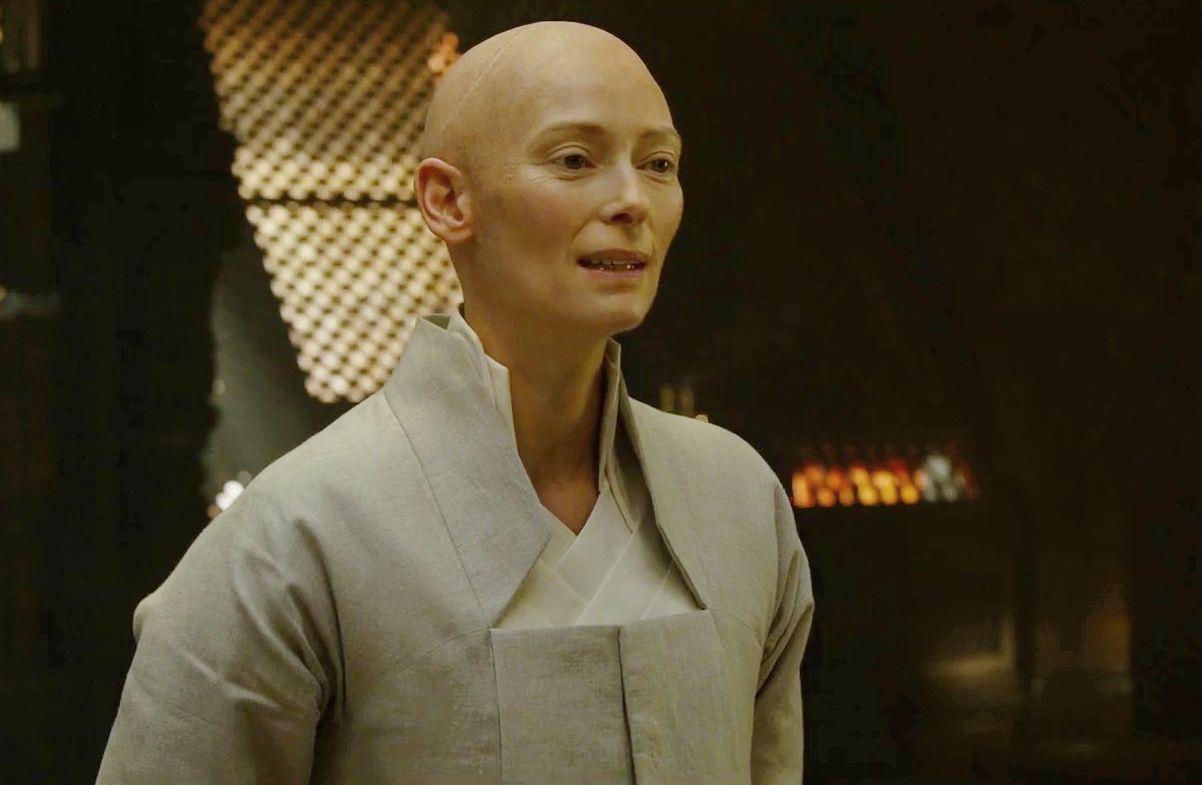Tilda Swinton, you showed your white privilege in your emails with Margaret Cho – but we can move past this
Swinton may have been trying to be sensitive in seeking out Cho’s opinion, but Cho also has a right to laugh at the idea of being a mouthpiece for her entire race. Because when a wealthy white woman says 'Diversity is my comfort zone', you know she has blinkers on


An email exchange between Tilda Swinton and Margaret Cho has recently come under public scrutiny. Swinton contacted Cho after facing a backlash for playing a character in Doctor Strange which was of Tibetan origin in the comics. The frustration at Swinton’s casting was based on the idea of “whitewashing” – casting white actors in roles that were originally written as people of colour – which the film industry is undeniably guilty of.
The anger towards this stems from two main grievances: not only are there too few film scripts which include Asian characters, but often when there is the opportunity for a part to be played by an Asian actor, the part is given to someone white.
In the eyes of many, Swinton being cast as The Ancient One in Doctor Strange was a prime example of this. On discovering that many people were critical of her playing this role, Swinton reached out to Asian American comedian, actress, singer, author and fashion designer Margaret Cho, apparently to gain clarity about the social media reaction.
Cho then proceeded to publicly discuss the exchange, claiming “[Swinton] was like, ‘Could you please tell them’ …” (assumedly referring to the Asian community) “… and I’m like, ‘Bitch, I can’t tell them … I don’t have a yellow phone under a cake dome.’”

Swinton then went on to publish their email exchange, supposedly in an effort to counteract Cho’s comments.
And, if I were Swinton, I would probably have responded similarly. Her emails were friendly, and she made some valid points about the fact that the character had originally been a stereotype that they sought to shake up. Swinton highlighted the general diversity of the film and drew attention to her casting being, in some ways, progressive, because she was an older woman playing what was originally a man’s role. I can see why she might think the film was the misplaced target of a wholly legitimate argument.
Cho, in portraying the email exchange, did certainly exaggerate for comic effect. But, whilst I understand the basis of Swinton’s approach, I do ultimately think her emails were problematic, and that Cho’s frustration and ridicule towards the actress was largely justified.
Because, when anyone states “Diversity is pretty much my comfort zone”, you know they’re coming at an issue with blinkers on. Especially when that person is a wealthy white woman. Because believing in diversity is not just a matter of wearing a badge that says “BME people welcome!” Diversity isn’t something you just “get” or “don’t get”. It’s a complicated process of checking your own privilege, listening to other people, and constantly learning and improving.
I know what Swinton is trying to imply. The actress is trying to say that she cares immensely about issues of diversity, and therefore hates the idea that she has been complicit in institutionalised racism.
And I do sympathise with Swinton, because, even as a BME woman, I also find myself falling into the trap of thinking that I cannot be prejudiced or complicit in prejudiced practices, because I spend a lot of my time resisting them. But I am wrong. It is almost impossible not to mess up and look over certain sorts of discrimination that have never affected you. And when that happens, especially when you feel that any error on your part was completely unintentional, it’s easier to get defensive than it is to admit fault. That’s not just because of pride – it can also come from a place where you’re desperate to prove that you care.
We are all capable of making mistakes, or not noticing the biases that favour us. When this happens, it is incredibly easy to self-justify and forget to listen, due to a reasonable fear of being labelled as the thing we abhor.
But what we need to understand is that the diversity debate is rarely a witch hunt. It’s not about deciding that Swinton’s a racist and then looking for the next undercover bigot. It’s about detecting fault and learning from it.
So it’s wonderful that Swinton and Cho’s nuanced email exchange has had so much media attention. Because it has shown us that you can have good intentions, but still be blinded by privilege. Swinton may see her casting as justifiable, but that doesn’t preclude Cho’s frustration, and that of the wider Asian community. Swinton may have been trying to be sensitive in seeking out Cho’s opinion, but Cho also has a right to laugh at the idea of being a mouthpiece for her entire race.
Swinton must not think that, just because she cares about equality, she is incapable of complicity with racial bias. Because it is white privilege, and not diversity, which actually constitutes her “comfort zone”.
Join our commenting forum
Join thought-provoking conversations, follow other Independent readers and see their replies
Comments
Bookmark popover
Removed from bookmarks